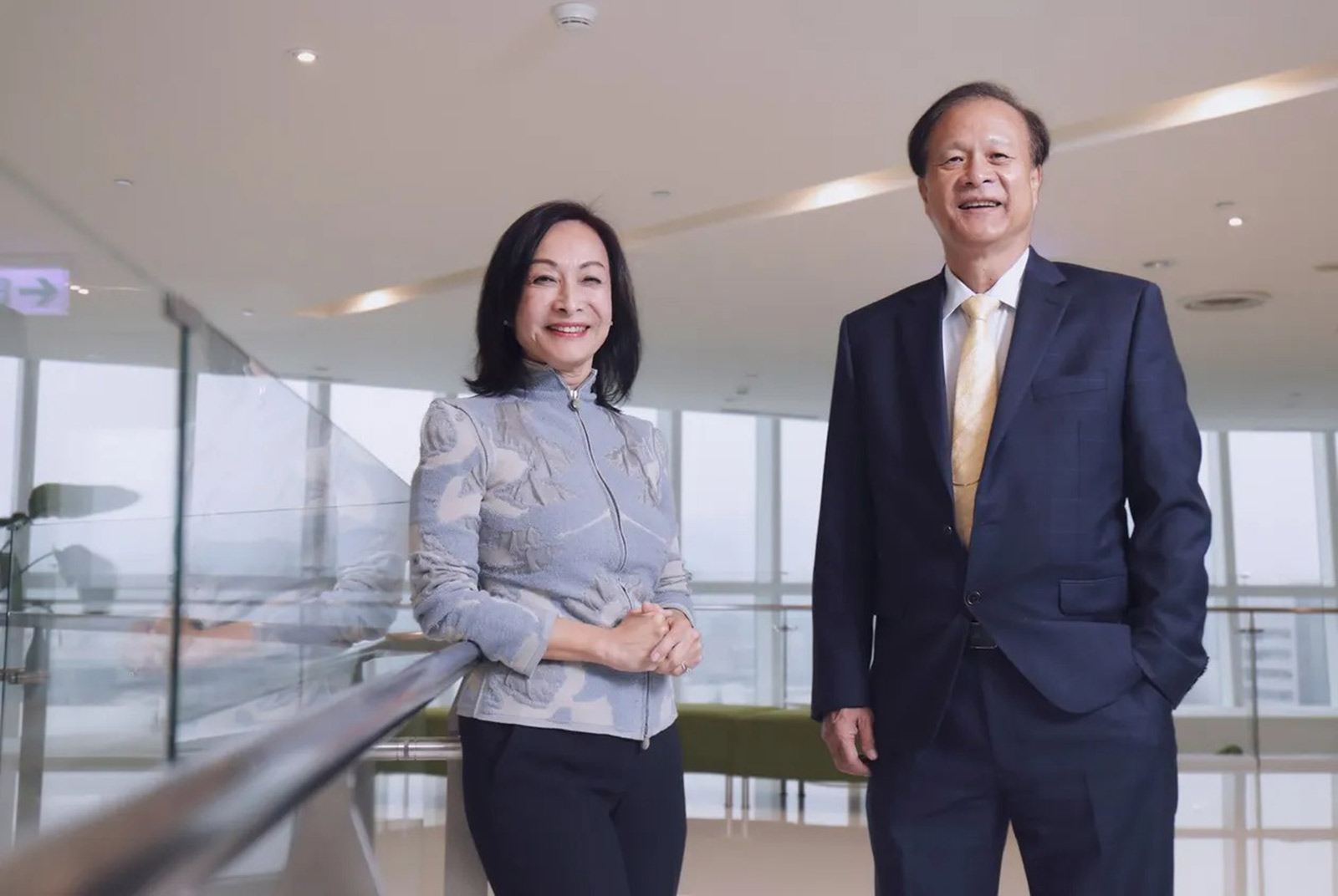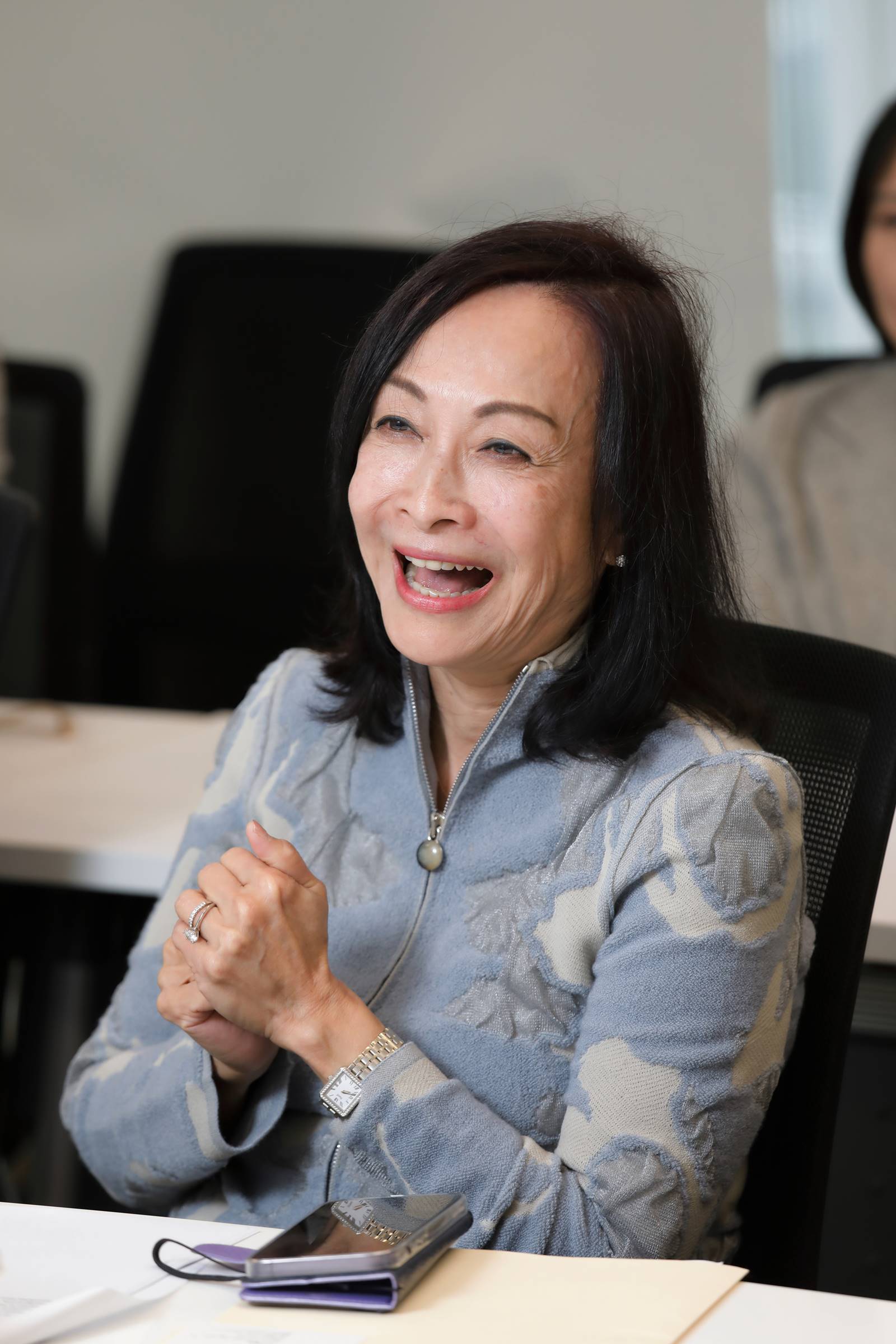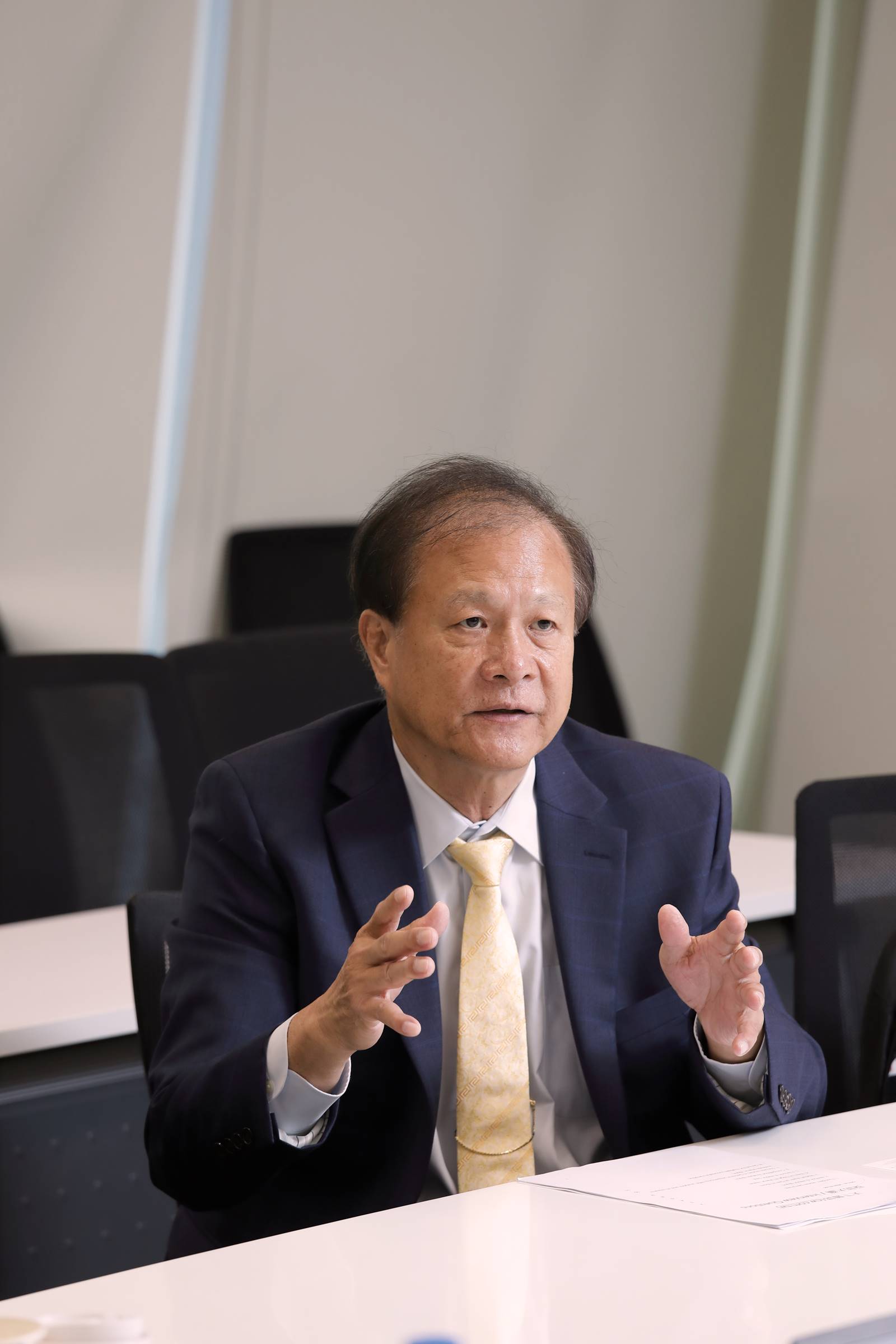Behind AMAX, one of NVIDIA’s earliest partners

Source:Chien-Tong Wang
Taiwanese AI company AMAX, which just joined the Taiwan stock market last year, was established in Silicon Valley over 40 years ago. With half of its revenue from AI, it stands as one of NVIDIA's first GPU server partners. How did they achieve this?
Views
Behind AMAX, one of NVIDIA’s earliest partners
By Meng-hsuan YangFrom CommonWealth Magazine (vol. 793 )
In the realm of AI-driven businesses, many tout themselves as leaders. However, the real litmus test lies in the percentage of revenue derived from AI operations. According to a report by Morgan Stanley, Taiwanese server manufacturers such as Wistron, Quanta, and Gigabyte, which have seen their stock prices skyrocket recently, have AI-related revenue percentages topping at Wistron's 22% and Gigabyte's 20%.
Surprisingly, there's one Taiwanese company whose AI server revenue hits a staggering 50%, nearly matching Supermicro's 52%.
This company is AMAX, which was founded over 40 years ago and only returned to Taiwan from the United States to go public last year.
Despite its modest revenue of around NT$6 billion (around US$200 million) in 2023, this Silicon Valley-based company has been customizing high-performance AI servers for Microsoft's AI lab, Silicon Valley startups, and the world's largest semiconductor equipment manufacturers. This prowess even attracted a 25.74% investment from Foxconn.
While the scale of AMAX may be smaller compared to Taiwanese AI server manufacturers with revenues in the billions, it holds distinct advantages. Situated in Silicon Valley, it was an early partner for both Microsoft and NVIDIA, collaborating with the latter on servers as far back as 2008.
Since going public in November last year, AMAX's stock has risen by 120%. But what's the story behind AMAX's success?
Taiwanese entrepreneurs in Silicon Valley
In January this year, AMAX's chairwoman, Jean Hsiao-Ching Shih, and its risk manager, Chi-Lei Ni, siblings who come from a civil servant background, flew back to Taiwan to attend an awards ceremony held by the Taiwan Stock Exchange.
With three founders, including Jean Hsiao-Ching Shih and Chi-Lei Ni, who both graduated from Taiwan University with degrees in economics and civil engineering respectively, and Shih's husband, Jerry Kchine Shih, currently serving as AMAX's CEO, who holds a bachelor's degree in industrial engineering from Chung Yuan Christian University.
Around 1980, the trio went to the United States for further studies. Upon completing their master's degrees, they found themselves in the midst of the burgeoning PC era in Silicon Valley. A group of Taiwanese alumni informed them about the lack of patented products in the market, such as Z80 expansion cards and 80-column text cards for Apple computers. The manufacturing hub for these products? Taiwan.
They enlisted the help of relatives in Taiwan to source products from manufacturers and export them to the United States. Local white-label computer companies in California discovered AMAX's supply chain and approached them for business.
"We were making profits of over 50%," Ni reminisces. The Z80 card was bought for $40 and sold for $80, while the 80-column text card, costing $60, fetched a selling price of $180.

Even Microsoft invited AMAX to Seattle to discuss business and assist in selling DOS operating systems. However, Microsoft's true intention was to understand the white-label computer market in Northern California through AMAX. "At that time, Microsoft had only one salesperson. We were even one of Microsoft's first nine authorized distributors," Shih recalls.
Transitioning from PCs to Servers
Despite lucrative sales, they realized that sticking to distribution made them vulnerable to being replaced. Hence, they decided to venture into manufacturing. Led by Jerry Kchine Shih, who had a background in industrial engineering, they recruited talent from Taiwan and established a factory in Silicon Valley, specializing in custom-built computers for clients.
However, the rise of Dell and its formidable bargaining power led to the closure of other brands, including AMAX's most important client. "The cost price of my product equals Dell's retail price. They could even make a profit of 20% to 30%, which was terrifying," Ni states.
Seeing the writing on the wall, AMAX abandoned PCs and shifted to server assembly in the early 2000s. This pivotal decision not only ensured AMAX's survival but also aligned them with NVIDIA, the protagonist in today's AI landscape.
Early partner for NVIDIA GPU Servers
As early as 2010, AMAX began collaborating with NVIDIA on GPU servers.

At that time, AMAX gathered product development roadmaps from Silicon Valley companies and discovered that NVIDIA was transitioning from gaming to servers. "When I saw that they had more cores than Intel, hundreds or even thousands of them, I was very eager to collaborate with them," Ni explains. In 2010, AMAX launched its first GPU server featuring NVIDIA Tesla C1060 GPUs.
Over a decade later, with the explosion of AI, everyone is vying for NVIDIA's GPUs. While AMAX's scale may not rival those large assembly plants with revenues in the billions, they are not worried about chip shortages.
According to Lin Jiaxing, general manager of China Trust Securities, speaking at AMAX's presentation, one of AMAX's advantages is its long-term partnership with "upstream chip manufacturers," ensuring timely access to chips and smooth product design and production.
"Sometimes delivery times may be delayed, but there's absolutely no problem with obtaining GPUs," Shih confidently asserts.
Tailored AI Server Solutions
Another advantage is AMAX's location in Silicon Valley, allowing them to access cutting-edge technology quickly. Recognizing the increased computational demands of servers, especially in AI, they began researching liquid cooling technology as early as 2015.
AMAX's Vice President of Business, Cao Boyang, illustrates that whenever NVIDIA, AMD, or Intel launches new GPUs or CPUs, there may not be corresponding liquid cooling solutions available in the market. AMAX's dedicated hardware team designs and develops bespoke liquid cooling solutions for clients, while also assisting in software testing and operation to ensure maximum performance.
Through software-hardware integration, AMAX helps clients tailor complete AI server solutions. "In Taiwan, no other company possesses such capabilities. Even in the United States, there are only four or five companies that can provide similar services," says Chen Shoushan, former technical consultant at UNEED Technology and acquainted with AMAX's founding team for over 15 years.
A glance at NVIDIA's website reveals AMAX among the five certified data center system integration partners, with the other four being local American companies.
Chen observes that AMAX also has a formidable proprietary simulation software developed over the years.
This software serves as an internal database for AMAX, enabling them to generate preliminary hardware specifications based on customer requirements, including the number of servers, network speed, and network structure, which can be adjusted based on budget constraints.
"We even consider our clients' future needs," Ni emphasizes. When designing solutions, AMAX ensures that there is room for expansion, addressing potential issues such as inadequate computing power, storage capacity, or excessive heat or power consumption when scaling up in the future.
Custom Servers, supporting Microsoft's AI lab
It's because of this that world-class clients trust AMAX to tackle challenges. One of the top three semiconductor equipment manufacturers globally is an AMAX client, relying on them to build earthquake-resistant, low-noise servers for semiconductor wafer factories.
AMAX even customizes workstation-type AI servers for Microsoft's internal engineering and scientific research labs. The lab's mission is to develop AI algorithms internally for Microsoft, thus requiring high system computational power, network bandwidth, and storage bandwidth. Since off-the-shelf products from giants like HP and Dell couldn't meet Microsoft's demands, AMAX stepped in.
Wang Dong, AMAX's Director of Solution Architecture, explains the challenge lies in squeezing more CPUs and GPUs onto a single motherboard to enhance computational power, which can compromise high-speed transmission performance. AMAX tackles this by customizing firmware, mechanical components, and cooling solutions to meet Microsoft's requirements.
"We've been cooperating with Microsoft's lab for over seven years, with shipments totaling millions of dollars and hundreds of units annually," Ni reveals.
Investment from Foxconn Group
The Foxconn Group has also invested in AMAX through two subsidiaries, holding a total of 25.74% of shares, while the three founders collectively own 50.48%.
When asked about how the two companies collaborate, Shih states that being at the forefront of technology in Silicon Valley and close to customers, AMAX can provide Foxconn with insights into the latest technology trends. Meanwhile, as the world's largest EMS company, Foxconn can assist AMAX in expanding production capacity when needed. "We complement each other." Currently, the two companies are also jointly developing a liquid cooling solution for NVIDIA's H200.
Returning to Taiwan for listing after 40 years of entrepreneurship, Shih explains that one reason is to develop semiconductor customers in Taiwan. They also plan to use Taiwan as a production base and expand into Asian markets such as Singapore and Korea. The assembly line in Zhongli is set to commence operations in the second quarter of this year.
From PC components to AI servers, witnessing the evolution of the global electronics industry, they admit that over the past 40 years in Silicon Valley, they've seen many customers and system manufacturers being phased out by the times. Yet, AMAX has persevered. "AMAX never thinks about being the fastest or the first. Instead, we enjoy tackling our customers' challenges. Every breakthrough propels us forward," they conclude.
Have you read?
- The man behind Nvidia’s lead in the AI race
- Can AMD capture Nvidia's AI chip market?
- Why is Foxconn building "AI factories" with Nvidia?
Uploaded by Ian Huang






